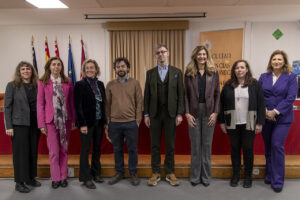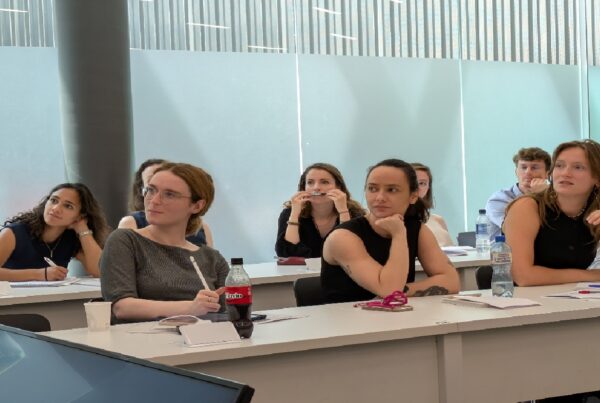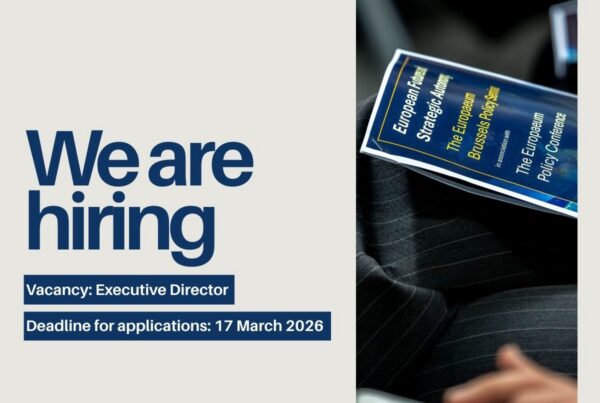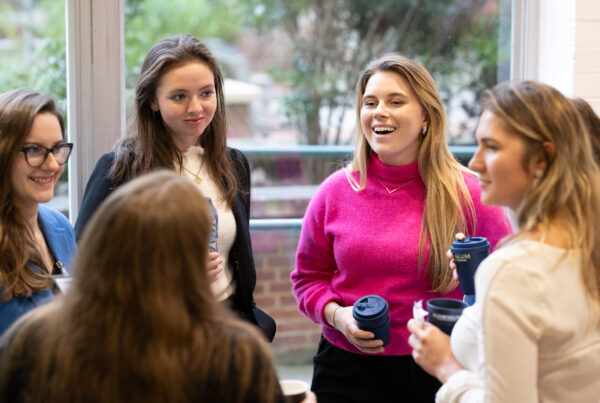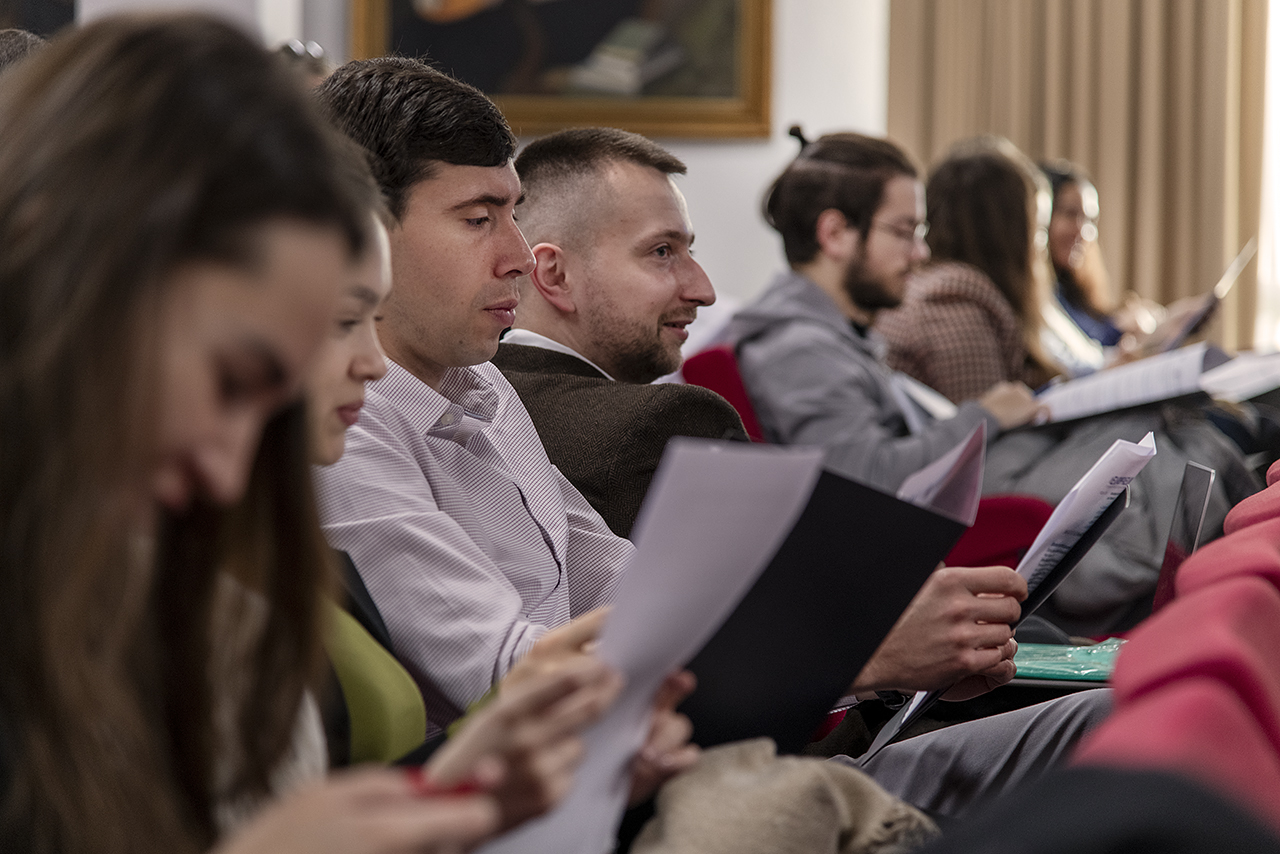
The 4th Europaeum Winter School took place at the Complutense University of Madrid from 4–7 February. The theme was “The Future of Europe’s Green Deal”. The Deal, launched in 2019, is the European Union’s ambitious plan to transform its economy for a sustainable future. However, recent developments in politics on both sides of the Atlantic have made the Deal’s implementation a great deal more challenging. Presentations from both experts and students explored the implications of this, as well as the possibilities for new technological breakthroughs that might ease the transition to a carbon neutral economy after all.
The event began with a keynote lecture from Ana Barrera, Founding Director of the International Institute for Law and the Environment, who discussed the rights that nature has in our system of international law. Roundtable discussions on “the circular economy” and “sustainable food: from farm to fork” saw academics and industry experts address students, explaining their perspective on the challenges facing companies and governments alike.
Further roundtables on “Sustainable Mobility”, “Energy Transitions”, and “A Just Transition” were interspersed with student presentations on subjects as diverse how academics can become carbon accounting leaders, the Green Deal’s impact on relations with Mercosur, and incentivising urban gardening. Prof. Lela Mélon (UPF) and Jacob Werksman from the European Commission also gave keynotes which presented, respectively a legal perspective on how to “surf the regulatory tsunami” surrounding environmental policy, and a perspective about the geopolitical future from Brussels.

The Europaeum is especially grateful to the many individuals who gave up their time to appear on the roundtable panels and to the local host organisers Prof. Rafael Fernández Sanchez and Prof. Clara García Fernandez-Muro. It also thanks the UCM Vice-Rector for International Affairs, Prof. Maria del Rosario Cristobál Roncero, for her generous support, and the many UCM professors who volunteered to chair panels, contributing to debate and discussion.
As often at Europaeum events, the students were encouraged to take advantage of the rich cultural opportunities afforded by our host city. In this case, the Europaeum arranged a special guided tour of the Thyssen-Bornemisza National Museum which contains what was once the second largest private collection of art in the world, representative of all tastes and styles for European art since the Middle Ages.
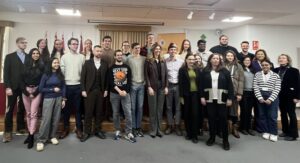
Student Heather Cameron (St Andrews) writes:
“Thank you so much to the organisers and sponsors of the Europaeum Winter School in Madrid for such a stimulating experience. It was fascinating to learn about the European Green Deal from the perspectives of a diverse range of speakers including academics, lawyers, business leaders, and public servants. This was both fascinating in its own right and will be very relevant for my PhD research on the Circular Economy. The Winter School has given me confidence to pursue international perspectives on how circular economy models are mobilised by different sectors in pursuit of European Green Deal ambitions. I also really appreciated the opportunity to get to know the other Winter School students and visit Spain for the first time. The Winter School was not only interesting but also fun. Muchas gracias!”
Student Alberto Simarro Correa (Complutense) writes:
“The 2025 Winter School on the Future of the European Green Deal at Universidad Complutense de Madrid was an insightful conference, providing valuable takeaways on the policy, economic, and geopolitical implications of Europe’s green energy transition. The event facilitated debates on sustainability, corporate responsibility, and European policymaking through thought-provoking presentations and engagement with key stakeholders. The interdisciplinary nature of the participants fostered meaningful discussions on sustainability challenges, recent policy developments, and the need for greater international climate cooperation. I was especially surprised by the wide range of academic backgrounds, which led to interesting perspectives on the same topic. I thank the Europaeum team for organising a conference on such an urgent and relevant topic, with important implications for the future of European and global climate policy. In this complex geopolitical environment, bringing together scholars, industry leaders, and policymakers is essential to sparking conversations on how to shape a just and competitive European Green Deal.”
